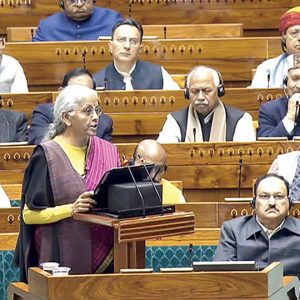It has been observed that high-net-worth individuals (HNIs) who possess significant wealth and assets often opt for term insurance plans or policies valued at more than 3 million Indian rupees.
This pattern shows how these wealthy individuals strategically plan their finances and manage risks. Continue reading this article to learn why HNI prefers these large-term insurance policies or policies higher than 1 cr term insurance.
Who are High-Net-Worth Individuals (HNIs)?
HNI is a banking term that means net-worth individuals; hence, HNIs. In India, no specific amount defines a High-Net-Worth Individual (HNI) or Ultra-High-Net-Worth Individual (UHNI). Nevertheless, where HNIs are observed to have investable assets of at least ₹1 Crore, UHNIs have investable assets of over ₹50 Crore or more.
Why HNIs Prefer For High-Value Term Insurance of Up to ₹3 Crore?
There are many factors associated with the popularity of high amount term insurance policies among people with high net worth, factors such as:
- Financial Security: High-net-worth individuals often prefer a higher amount of life coverage for various reasons. They do so to safeguard their loved ones, assets and wealth against unfortunate incidents.
- Estate Planning: These plans play an important role in estate planning, thereby ensuring an easy transfer of wealth to future generations.
- Tax Efficiency: High-net-worth term insurance has tax advantages that make it appealing for HNIs as an investment choice. In fact, its tax benefits make it a preferred choice for many employed individuals.
- Risk Management: They use these policies to manage financial risk and preserve wealth over time.
In essence, choosing a high-value term insurance plan is a proactive stance adopted by HNIs to mitigate risk and preserve wealth. They safeguard their property, guarantee business continuity, and establish a long-term provision for a secure financial future.
What are the Challenges Faced By HNIs?
HNI people in India often face a maze of challenges, such as:
- Market Risks: A high-net-worth individual should seriously consider market fluctuations before investing. Hedge funds and other structured products are prone to market volatility.
- Risk of Concentration: One asset may take up a large part of the investment capital available for HNI. In this case, any failures may cause substantial losses or trigger unexpected incidents.
- Taxes: Taxation becomes complicated for HNIs with large amounts of investment capital on hand. For example, HNIs must hire financial specialists who can offer better advice on managing their taxes since they will encounter several types of taxes, including capital gains, estate, and gift tax.
- Liquidity: Liquidity is also an issue that should be considered when investing in an HNI’s portfolio because certain investments, such as real estate or private equity, cannot be sold quickly, making it hard for them to have immediate access to funds.
- Complex Investing Landscape: Evaluating the risks and potential returns can be difficult for an investor. This is because many complex and difficult-to-understand investment options are suitable for HNIs. It’s not a simple task, but can be handled easily with the right guidance.
Conclusion
High-net-worth individuals (HNIs) in India utilise high-value term insurance plans with a sum assured above ₹3 Crore in a manner to address various financial needs and challenges. These policies are not only an investment for their future but also an avenue to save taxes, secure their family’s future, and plan estates.
Although there are a number of benefits associated with being an HNI, the issues concerning liquidity and a complicated investment environment require financial advice. The answer is simple if the challenges associated with it are well understood and managed. They can foster themselves to achieve long-term financial security and success.








Recent Comments